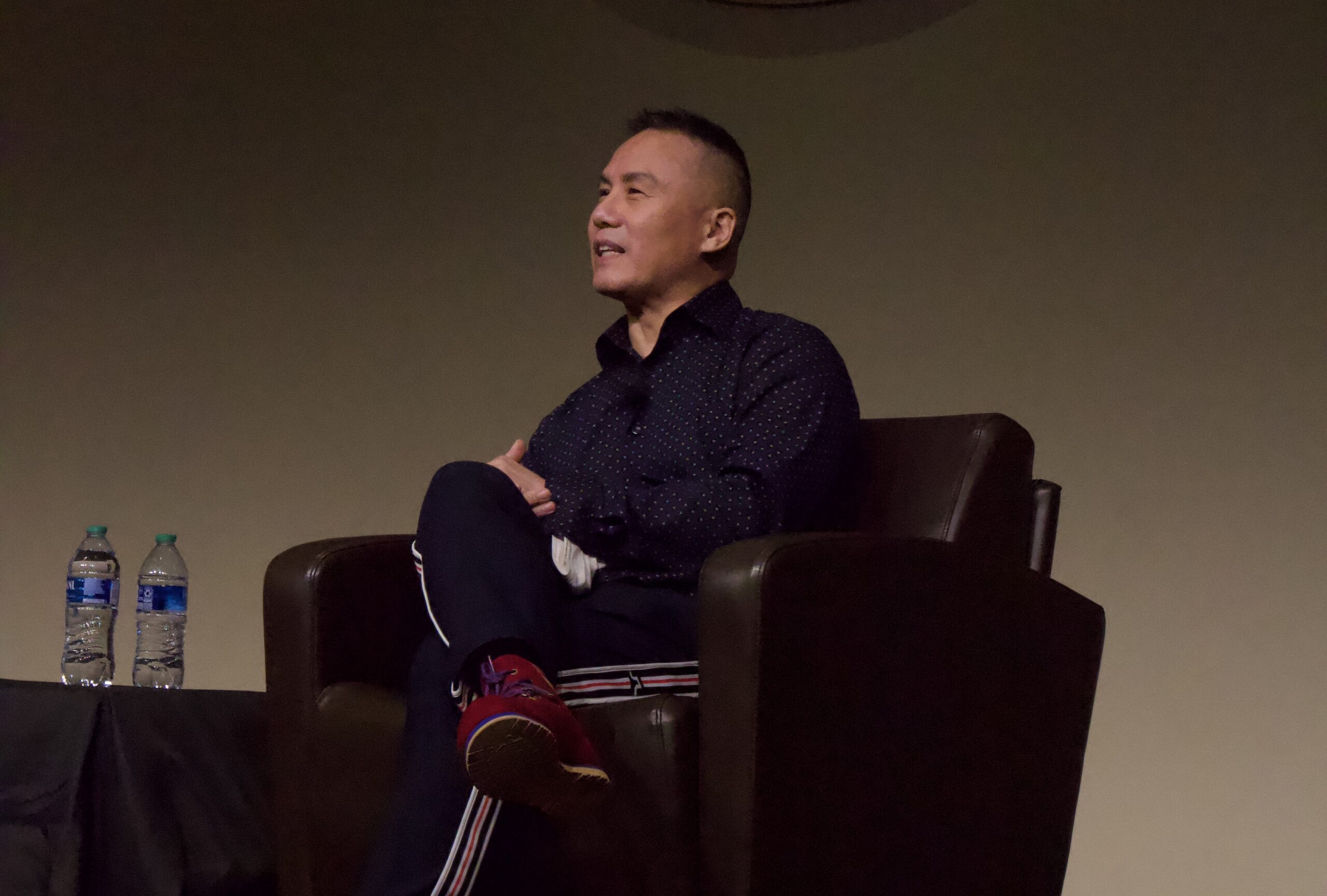BD Wong shares career highlights, importance of representation

Actor Bradley Darryl Wong, best known as BD Wong, was thanked by a student during the Q&A session for opening up Asian representation in movies. While talking about his role in “Mulan,” Wong joked about how the animated movie set the scene for all Asians in the media.
“It’s like Chinese people are the gateway for Southeast Asia. Thank goodness,” Wong said. “So yes, you are welcome.”
The Center for Student Involvement hosted the University Lecture Series in the Marshall Student Center Ballroom in celebration of LGBTQ pride, highlighting Wong’s career achievements. There were 214 people in attendance.
The actor is recognized as an important figure in the Asian community and was not shy about voicing how the industry has limited Asian characters. While mentioning his role in the first Jurassic Park, Wong said his character in the film didn’t represent the one in the novel as much as he would have liked.
“I was very in tune with the reasons they dial back certain characters. They weren’t interested in the Asian American guy,” Wong said. “They didn’t think they had a well enough known Asian American actor to give a big part to, so they gave the not well-known Asian guy a little part.”
Although Wong recognized the slight silencing of minority roles in media, he expressed hope when talking about the new generation. Wong said the lack of timidity and a possibility of a more open conversation on representation has opened doors to a lot of actors who identify as a person of color or queer.
“I will say, I think there has been this kind of panoramic landscape of changes over the time that I have been in the business,” Wong said.
While reminiscing about his time as a voice actor for “Mulan,” Wong mentioned how important it was for a border-breaking company like Walt Disney to make sure Asian characters were voiced by Asian people.
“It affected me greatly,” Wong said. “There was a time when it was commonly thought that voice work was not racially specific or culturally specific. So they had no problem prior to Mulan because you couldn’t see anyone’s faces, white actors got a lot of the roles.”
Wong said representation is a double-edged sword, specifically when considering LGBTQ roles. When a student asked the actor how he felt about heterosexual actors representing queer characters, and vice versa, Wong said it is a huge discussion that needed to be had.
“We have struggled so much with representation, and the privilege of non-gay actors or non-Asian actors to play us,” Wong said. “There are now these characters being written who are authentically gay. We want to have that experience where our unique sensibility will bring truth to these roles.”
Wong mentioned there should be more open discussions on representation, due to the fact that there are no rules, and art should be fluid. He expressed the importance of minorities seeing themselves on screen, even remembering the effects on his self-esteem due to the lack of representation.
“I was in a state where I was down on myself for being Asian American, and the reason is because the industry was being lousy to me,” Wong said. “I was struggling with a sense of whether I should try and be a white person, and that of course never works.”
Wong said the new inclusion of more women and queer people behind the scenes and in media creation is helping the understanding of different cultures, particularly in film. Before closing the floor to questions, Wong said now is the time to find individual passions.
“I give you full permission to explore yourself in every sense of the word,” Wong said. “Find your voice, and not get it right the first time and be OK with that.”







